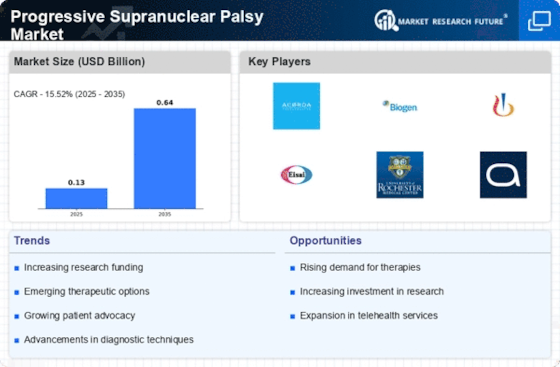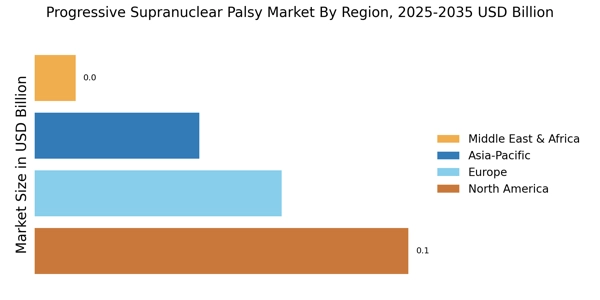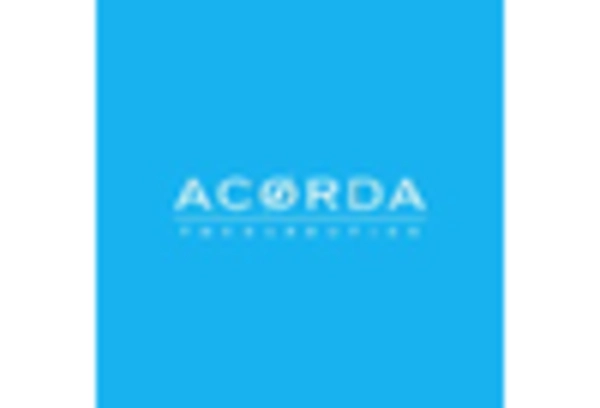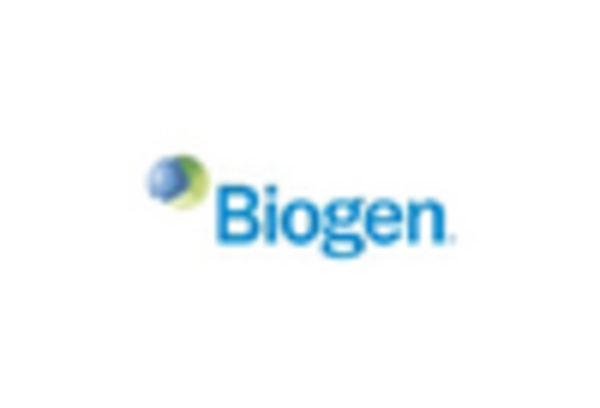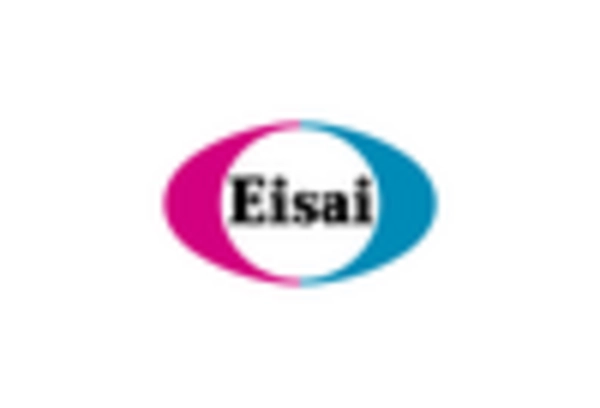Innovations in Therapeutic Approaches
Innovative therapeutic strategies are emerging as a critical driver in the Progressive Supranuclear Palsy Market. Recent advancements in drug development, including the exploration of neuroprotective agents and disease-modifying therapies, are showing promise in managing PSP symptoms. The introduction of novel treatment modalities, such as gene therapy and stem cell therapy, could potentially alter the disease's progression. As these therapies undergo clinical trials and gain regulatory approval, they are likely to attract significant investment and interest from pharmaceutical companies. This influx of innovation may enhance patient outcomes and expand the market by providing new avenues for treatment.
Growing Awareness and Education Initiatives
Increased awareness and educational initiatives surrounding Progressive Supranuclear Palsy Market are pivotal in shaping the market landscape. Organizations dedicated to PSP are actively working to inform both healthcare professionals and the public about the disease, its symptoms, and available treatment options. This heightened awareness is likely to lead to earlier diagnosis and intervention, which can improve patient quality of life. As more individuals become informed about PSP, the demand for specialized care and resources is expected to rise, thereby propelling the Progressive Supranuclear Palsy Market forward. Additionally, educational programs may foster collaboration among researchers, clinicians, and patients, further enhancing market growth.
Technological Advancements in Diagnostic Tools
The development of advanced diagnostic tools is significantly influencing the Progressive Supranuclear Palsy Market. Innovations such as advanced imaging techniques, including MRI and PET scans, are enhancing the accuracy of PSP diagnoses. These technologies allow for better differentiation between PSP and other neurodegenerative disorders, which is crucial for effective treatment planning. As diagnostic capabilities improve, healthcare providers are likely to identify more cases of PSP, leading to increased demand for targeted therapies. Furthermore, the integration of artificial intelligence in diagnostic processes may streamline patient assessment, potentially accelerating the pace of diagnosis and treatment initiation.
Increased Investment in Research and Development
Investment in research and development is a driving force behind advancements in the Progressive Supranuclear Palsy Market. Pharmaceutical companies and research institutions are allocating substantial resources to explore the underlying mechanisms of PSP and develop novel therapeutic interventions. This trend is evidenced by the growing number of clinical trials focused on PSP, which have increased in recent years. As funding for PSP research continues to rise, it is likely to lead to breakthroughs in understanding the disease and improving treatment options. This influx of investment not only supports the development of new therapies but also enhances collaboration among stakeholders, fostering a more robust market environment.
Rising Prevalence of Progressive Supranuclear Palsy
The increasing incidence of Progressive Supranuclear Palsy Market (PSP) is a notable driver for the Progressive Supranuclear Palsy Market. Recent estimates suggest that PSP affects approximately 5 to 7 individuals per 100,000 people, with a higher prevalence in older populations. As awareness of this neurodegenerative disorder grows, more individuals are being diagnosed, leading to a heightened demand for effective treatment options. This trend is likely to stimulate research and development efforts, thereby expanding the market. Furthermore, the aging population is expected to contribute to a rise in PSP cases, which may further drive the market as healthcare systems seek to address the needs of this demographic.


